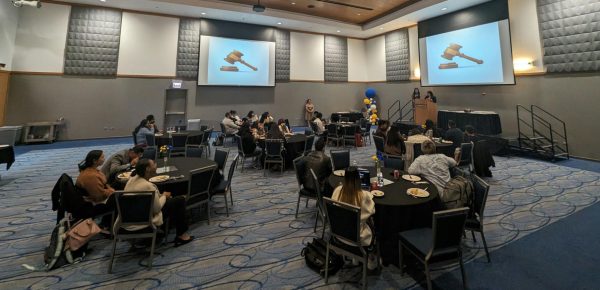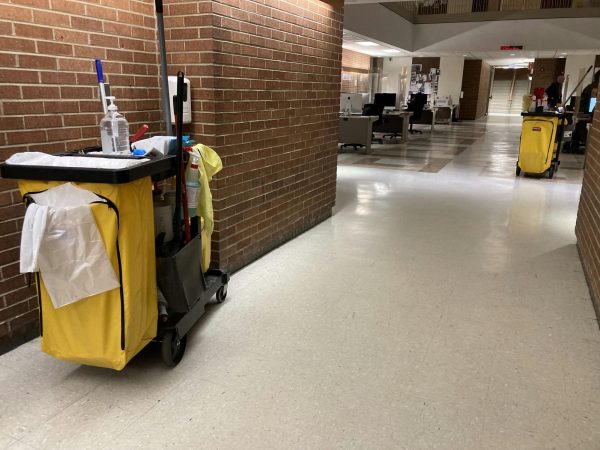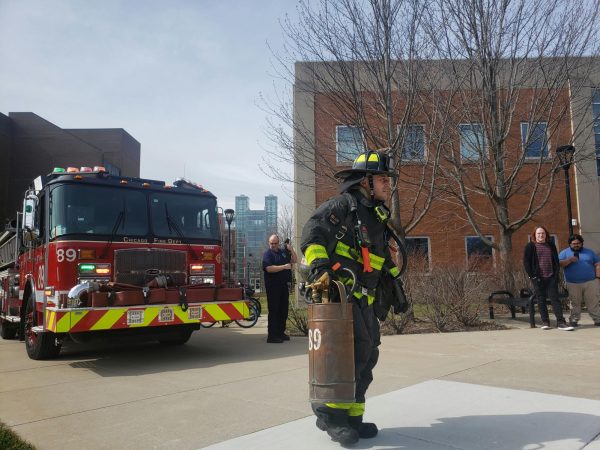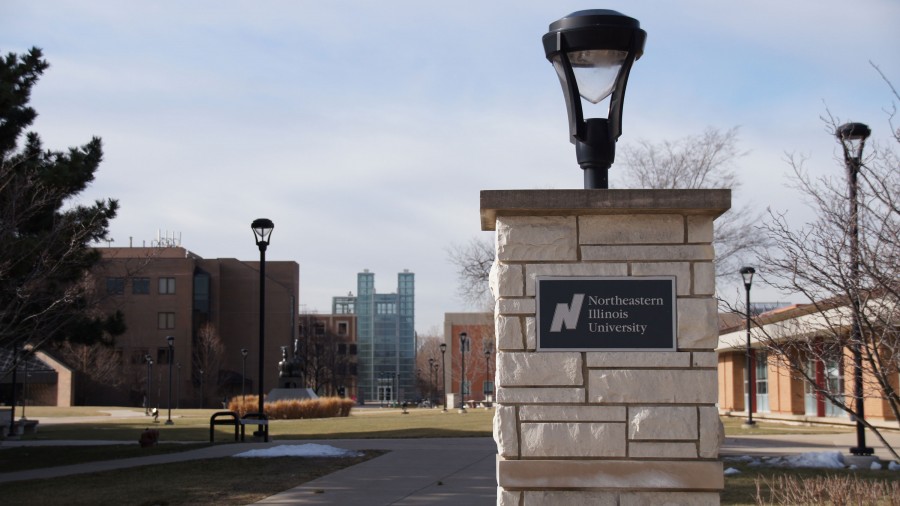NEIU to Stay Up Through Spring, Future Still Uncertain
More News
NEIU
President Hahs remains optimistic about NEIU’s near-future moving forward amid the budget crisis. The State of Illinois has lacked a budget since June 2015, putting public universities like NEIU in a tough financial spot.
“We’ll make it through commencement,” Hahs said. “The mystery becomes how about after.”
The House and the Senate passed Senate Bill 2043 on Jan. 28 that would fund Monetary Award Program grants and community colleges. The bill is asking for $721.5 million — $397 million to MAP grants and $324 million to community colleges — however it does not include funding for public universities.
“I want to be optimistic that we will be fine, that everything will work its way through and that we will deal accordingly,” Hahs said. “One factor would be if there was a bill that provides the MAP funding.”
Gov. Bruce Rauner is expected to veto the bill.
NEIU has fronted approximately $6 million out of the school’s reserve funds to aid students who receive MAP grants for both the fall and spring semesters.
However, the school has not reached such straits as its sister schools. Chicago State University announced on Jan. 19 that the school would shut down on Mar. 1 because it does not have the funds necessary to pay its employees. The Board of Trustees at Western Illinois agreed on Jan. 25 to layoff 30 teachers because of similar budget constraints.
Though NEIU is not at that point, without state appropriations it is not out of the question for the school to make necessary cuts. NEIU currently does not have a contingency plan moving forward due to the uncertainty of the state appropriation to the school.
“It’s not that we won’t have (a contingency plan), but we don’t have one yet,” Hahs said. “There are lots of requests from the House or Senate, the Appropriations Committees or the Caucus’ and the Governor’s Office of Management and Budget want to know (specific figures).
“All of our people are spending a lot of time creating the factual answers. How we run universities are not the same as how they run the government. So we need to teach them.”
NEIU’s main concern has been the spring semester and the total appropriation for fiscal year 2016, which Hahs called the “immediate issue.” The fiscal year ends June 30 and the new one begins July 1.
“I anticipate we will figure out how to do summer and I think fall will be great,” Hahs said. “We have to kind of tough it through (until then).
“But the legislature may work out all of its issues and work it out also with the Governor and life will normalize again. It’s just we don’t know that. I can’t promise that because nobody can promise me that.”
In the meantime, NEIU hopes to spread out the reserve funds through commencement into the summer.
“We are hoping we can stretch from the first week of May to last week of June,” Hahs said. “We are spending the money we’re supposed to spend. We are being conservative on the other things we wish we could do.”
Plans to upgrade the university as well as updated software for student learning have been set aside in order to keep the school afloat.
“The more that we’re able to put on the back burner, the more days of payroll and light bills we can (afford),” Hahs said. “So we hope to stretch.”
With the uncertainty about the state appropriations, Hahs said she is worried about a decrease in enrollment and current students, faculty and staff leaving for other schools.
“I worry about it for the reputation of our state first, that our state is not being supportive of public higher education,” Hahs said. “I worry about it for (NEIU) and I worry about current students or future students who think ‘I may not want to cast my fortunes here’ and go find somewhere else to go. I do worry about it.”
At this point, admission applications are up but Hahs said a lot can change from now until fall semester.
Hahs added that NEIU is doing “so well in other ways” and that the budget crisis is “not fair.” She also assured the school will get the students, faculty and staff through this matter as long as they “hang in there.”
Most of the faculty and staff have remained “tough” and optimistic according to Hahs.
As the school stands on the precipice of a shutdown, a Jan. 21 email to the NEIU community announced the school now owns the 3400 block of Bryn Mawr Avenue. The email came a day after Hahs sent out an email acknowledging the crisis NEIU is facing.
“It was fair and appropriate to tell the university community we had acquired them all and, therefore, our housing project future,” Hahs said. “It’s building for the future for a permanent acquisition.”
The Board of Trustees approved the acquisition of 3400 block of Bryn Mawr Avenue in 2014 which included several privately owned properties. The use of eminent domain to acquire those properties garnered negative media attention to the university. However, construction on Bryn Mawr will not begin until the Nest, the current student housing project, is finished.
Reserve funds are not used for the student housing projects. The projects are funded by various private entities and the lease money students will pay helps pay the employees who run the student housing as well as pay back the entities over several years. The Nest costs approximately $42 million to build and is slated to open for the fall 2016 semester.
“While we are in this awkward place here, this is happening without spending the university’s money,” Hahs said. “That’s the advantage of the agreement among these parties. A lot of colleges are building resident halls like this now.”
In order to help the university and, potentially, end the stalemate, Hahs urged the NEIU community to make sure friends, family and neighbors are educated about this crisis and to also contact each unique legislator to ensure they know the importance of this.
“My job is not to disrespect any of the leaders but to keep arguing that higher education deserves (state appropriation),” Hahs said. “It’s good for Illinois. It’s good for our students and our students deserve (state appropriation). This is the future economic development of our state.
“Let alone, my students deserve this because they are my students,” Hahs said. “They are worthy.”





![[click to see full image] Military figures each representing a military branch. The third figure is in a wheelchair to represent veterans who were left injured after serving.](https://neiuindependent.org/wp-content/uploads/2024/05/LeslyAlonsoVetArticle-600x116.png)



